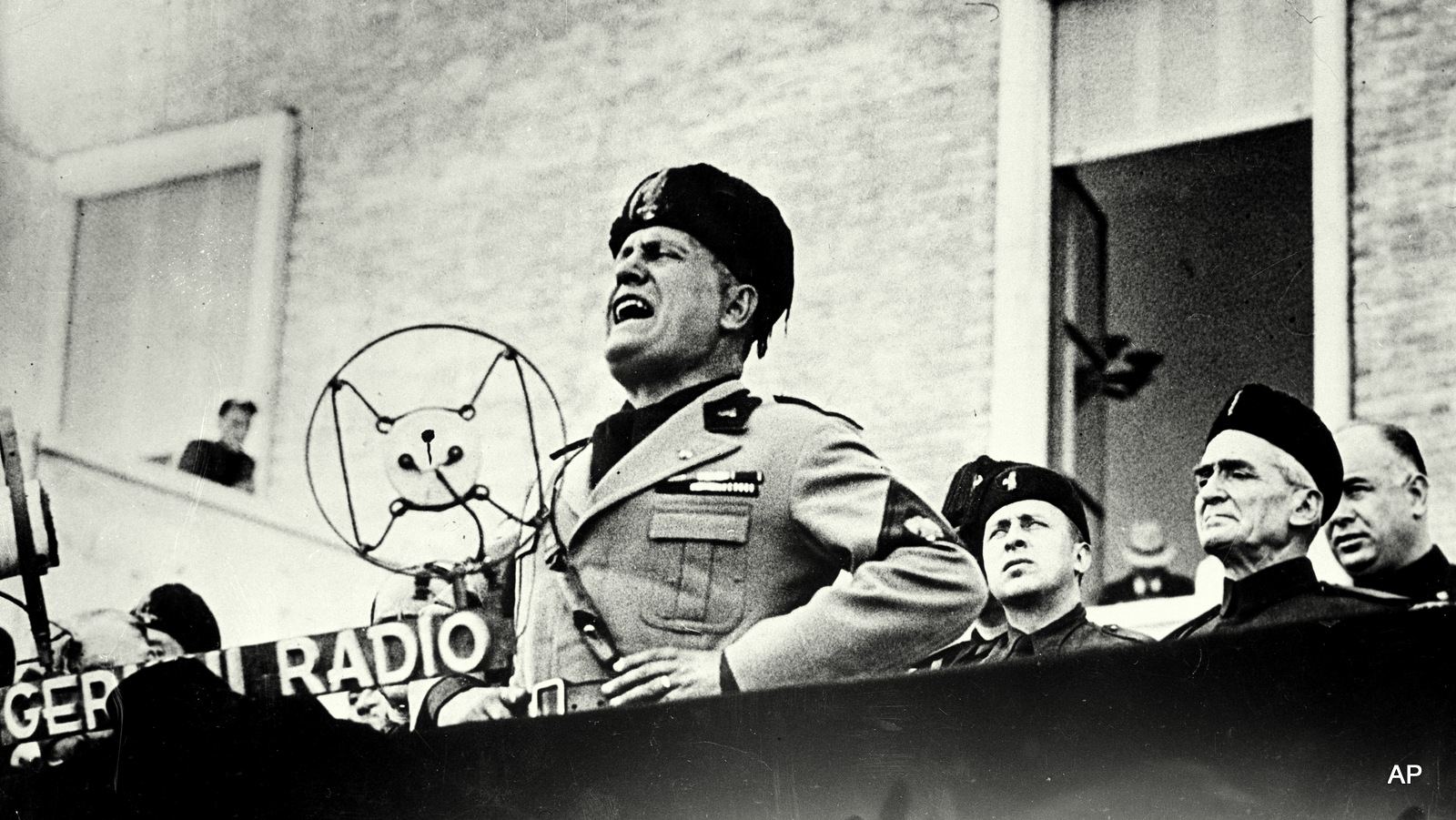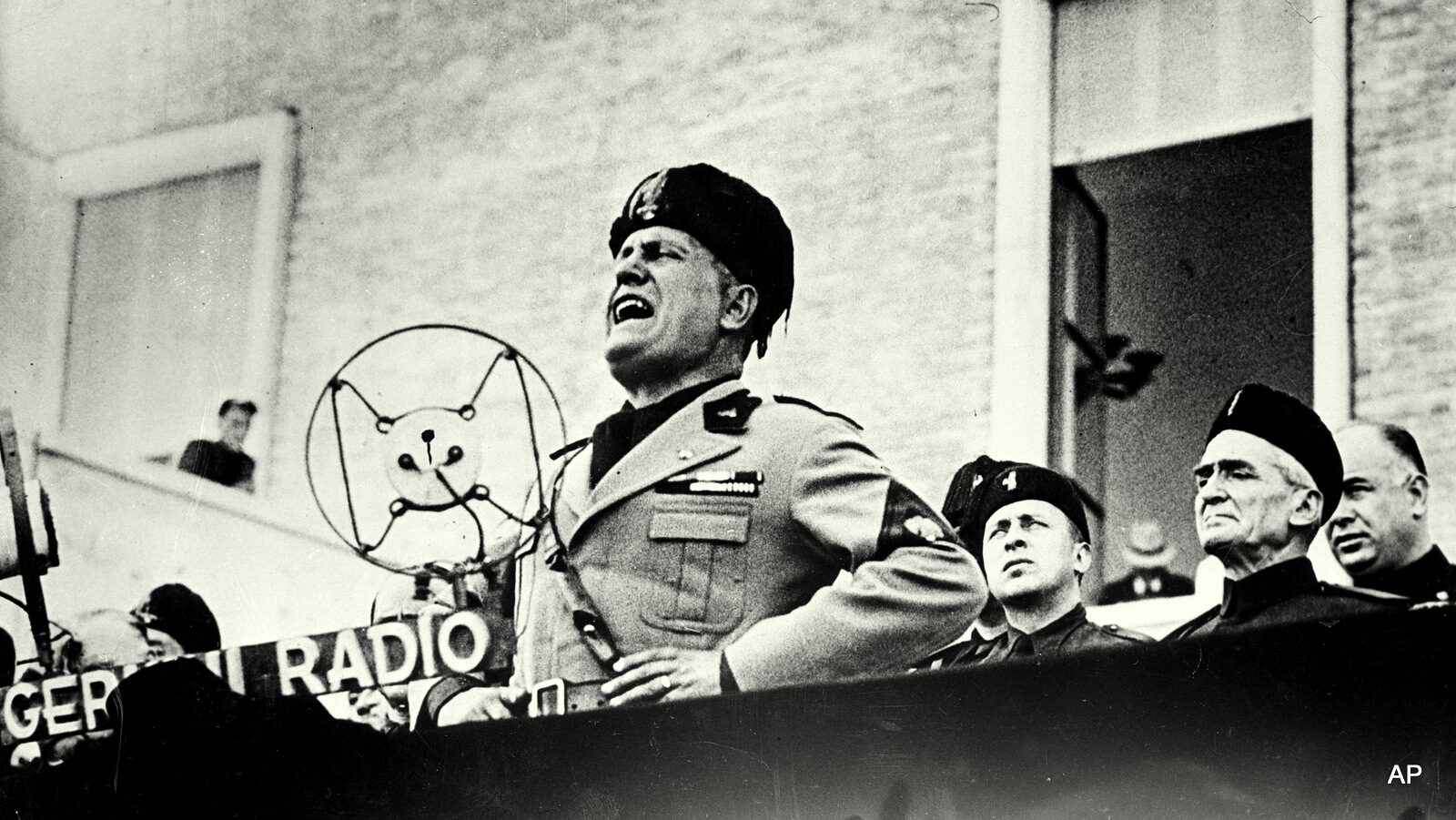
MUNICH — While the typical narrative of American history positions the United States as a supporter of democracy and opponent of fascism which helped to defeat the Nazis, key figures in Washington also supported dangerous dictators in Italy and Germany in their early days of power.
Noam Chomsky, the renowned political philosopher, historian and scholar, examined the flip side of U.S. opposition to dictatorship in a conversation with Zain Raza, a senior editor at the independent media outlet acTVism Munich. An excerpt from the conversation was published Sept. 30 as part of acTVism Munich’s “Reexamining History” series.
Speaking to Raza about Italian dictator Benito Mussolini, Chomsky said President Franklin Roosevelt was “pretty supportive of Mussolini’s fascism.”
Mussolini took power in Italy in 1922, and by 1925, he had dropped the pretense of democracy and openly embraced dictatorial rule. Under his leadership, the Italian government brutally suppressed labor rights and socialist movements, as well as virtually all other political opposition through violence, assassination and the use of secret police. He was also a key ally of Germany under the Nazis.
“I don’t mind telling you in confidence that I am keeping in fairly close touch with the admirable Italian gentleman,” Roosevelt wrote in a 1933 letter, referring to Mussolini.
In another letter to an American envoy, he wrote:
“I am much interested and deeply impressed by what he has accomplished and by his evidenced honest purpose of restoring Italy and seeking to prevent general European trouble.”
With Mussolini having a reputation for efficiency (even if that reputation may have been undeserved), Chomsky noted that he was a favorite of the U.S. business community, too. He continued:
“[T]he power systems in the United States were highly supportive of Mussolini. In fact even parts of the labor bureaucracy were. Fortune Magazine, for example, the major business journal, I think in 1932, had an issue with the headline, I’m quoting it: ‘The wops are unwopping themselves.’
The ‘wop’ is a kind of a derogatory term for Italians, and the ‘wops’ are finally ‘unwopping’ themselves, under Mussolini they’re becoming part of the civilized world.’”
Even Adolf Hitler, who died an enemy of the United States, was initially seen as a “moderate” force in German politics, Chomsky explained. Recalling a 1937 report from the State Department, he continued:
“The State Department described Hitler as a moderate who was holding off the forces, the dangerous forces of the left, meaning the Bolsheviks, the labor movement and so on, and of the right, namely the extremist Nazis. Hitler was kind of in the middle, and therefore we should kind of support him.“
Ultimately, however, it was the Japanese attack on Pearl Harbor which finally drew the United States fully into World War II.
Perhaps comparing historic support for fascist leaders to modern U.S. foreign policy, Chomsky added: “This is a pretty familiar stance, incidentally, like many other cases.”
Today, for example, the United States boasts Saudi Arabia as a key ally in the Middle East, despite the latter’s brutal record on women’s rights and ongoing war crimes in Yemen. And, in Syria, the United States backs so-called “moderate” rebels, even though they’ve been linked to everything from beheading children to the use of chemical weapons.


